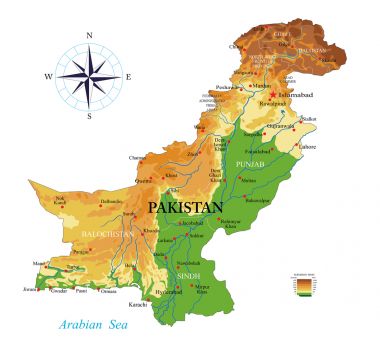Churches set on fire by mob in Pakistan

(CP) A frenzied mob on Wednesday descended upon a Christian colony in Pakistan's Punjab province, attacking and ransacking as many as eight churches, setting them on fire and vandalizing adjoining buildings.
Sparked by allegations of blasphemy against two local Christian residents, the violent crowd created panic and fear throughout the area, forcing hundreds of Christian families to flee their homes.
The accused, identified as Rocky Masih and Raja Masih, were charged with insulting Islam and defiling the name of the Prophet Mohammed under the controversial Pakistani Penal Code, the U.K.-based group Christian Solidarity Worldwide said in a statement.
The mob's anger, fueled by reports broadcasted over local mosque loudspeakers, led to demands for the immediate execution of the two men in Jaranwala city, the group said, adding that although police assured that legal action would be taken, videos revealed crowds attacking the Christian colony.
Residents told CSW that at least 500 homes were abandoned in three Christian settlements due to fear of more violence. The Salvation Army Church, one of the area's oldest, was reportedly set on fire.
In an update Wednesday, the National Commission for Human Rights reported that the number of churches attacked has risen to eight. The commission reported earlier that four churches were burned, and many Bibles were set on fire. Three of those churches were Salvation Army churches.
Extremist slogans in favor of the far-right Islamic extremist political party Tehreek-e-Labbaik and the Islamic group Khatam-e-Nabuwat were raised by local mobs.
The delayed response by police drew criticism, with residents expressing belief that timely intervention could have prevented the escalation. The government subsequently deployed additional police and summoned federal law enforcement to control the mob.
Christians in the area quickly relocated to safer locations with their families, avoiding casualties, according to The Associated Press, which reports that Christians began to return to their homes Thursday, only to discover the devastation left behind.
At least two dozen homes were either torched or severely damaged during the riots, the newswire noted.
The U.S. State Department Deputy Spokesperson Vedant Patel said the United States was "deeply concerned that churches and homes were targeted," Reuters reported. "We urge Pakistani authorities to conduct a full investigation into these allegations and call for calm for all those involved."
CSW's Founder President Mervyn Thomas condemned the violence and criticized the police's failure to act swiftly. He called on the Pakistani government to enhance security, support the displaced and arrest those responsible to ensure that mob justice does not prevail.
Bishop Azad Marshall, Moderator Bishop of the Church of Pakistan, called for justice for the Christian minority.
"Words fail me as I write this. We, Bishops, Priests and lay people are deeply pained and distressed at the Jaranwala incident in the Faisalabad District in Pakistan. A church building is being burnt as I type this message. Bibles have been desecrated and Christians have been tortured and harassed having been falsely accused of violating the Holy Quran," the bishop wrote on X.
"We cry out for justice and action from law enforcement and those who dispense justice and the safety of all citizens to intervene immediately and assure us that our lives are valuable in our own homeland that has just celebrated independence and freedom," he added.
Punjab's caretaker information minister, Amir Mir, announced that more than 100 people were arrested, Al Jazeera reported.
The incident erupted after torn pages of the Quran, discovered near the Christian colony with alleged blasphemous content, were taken to a local religious leader, who urged Muslims to protest.
Rights groups have long criticized Pakistan's blasphemy laws, citing their misuse for personal gains. According to the Centre for Social Justice, over 2,000 people have been accused since 1987, with at least 88 killed on such allegations.
This violence follows the recent passage of two bills in Pakistan's legislature that have stirred concerns among Christian and civil society groups. The Criminal Laws (Amendment) Act 2023 increases punishment for blasphemy offenses, while the National Commission for Minorities Bill 2023 has been viewed as inadequate in safeguarding minority rights.
The ban against blasphemy, which carries no provision to punish a false accuser or a false witness, was expanded in the 1980s under military dictator General Zia-ul-Haq. According to The New York Times, the British government enacted the original laws in the late 19th-century colonial era to keep people of different faiths from fighting each other.
In recent years, there have been several high-profile cases that have brought international attention to the issue.
In 2011, the governor of Pakistan's Punjab province, Salman Taseer, was assassinated by his bodyguard for speaking out against the blasphemy laws.
In the same year, Asia Bibi, a Christian mother of five, was sentenced to death for alleged blasphemy, sparking international outrage, leading to her acquittal in 2018 after spending eight years on death row.
Her acquittal drew the ire of radical extremist groups, as many protested in the streets and threatened to kill the Supreme Court justices responsible for setting her free.
In 2014, Christian couple Shehzad and Shamah Masih were burned to death in a brick kiln over false accusations that they had ripped pages out of the Quran.
In 2020, the Human Rights Commission of Pakistan reported that at least 69 people were killed extrajudicially in mob violence related to blasphemy allegations since 1990.











